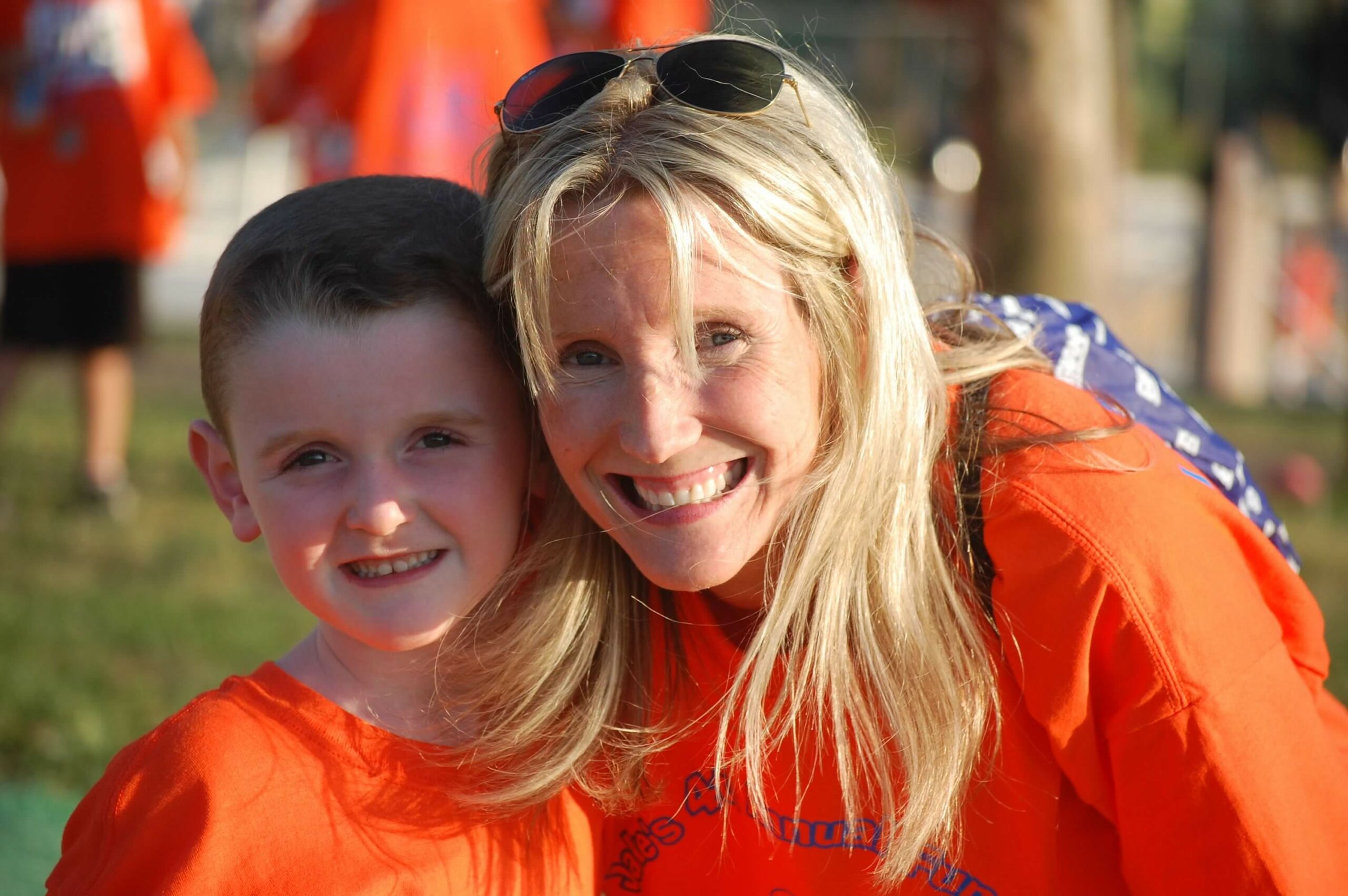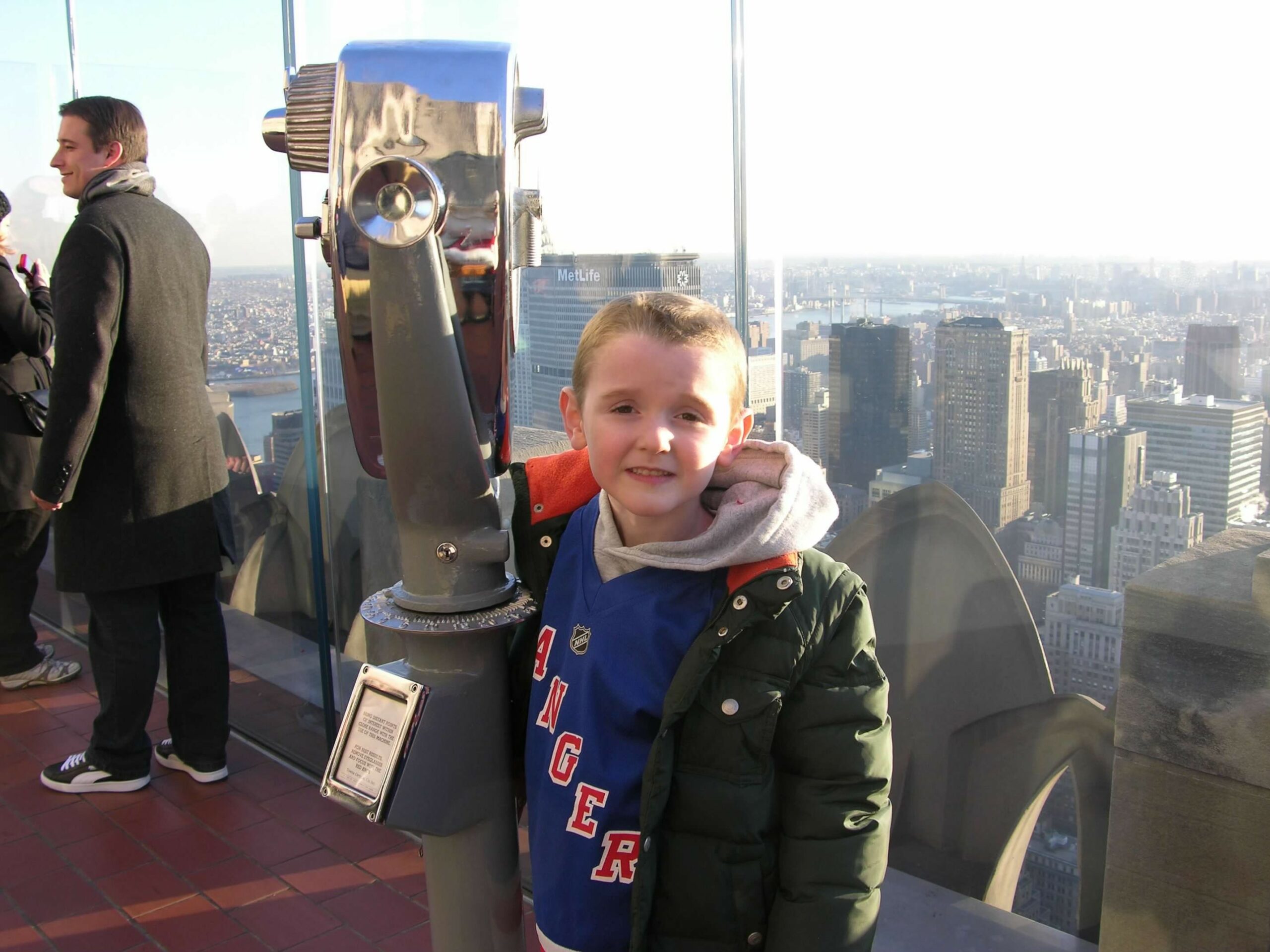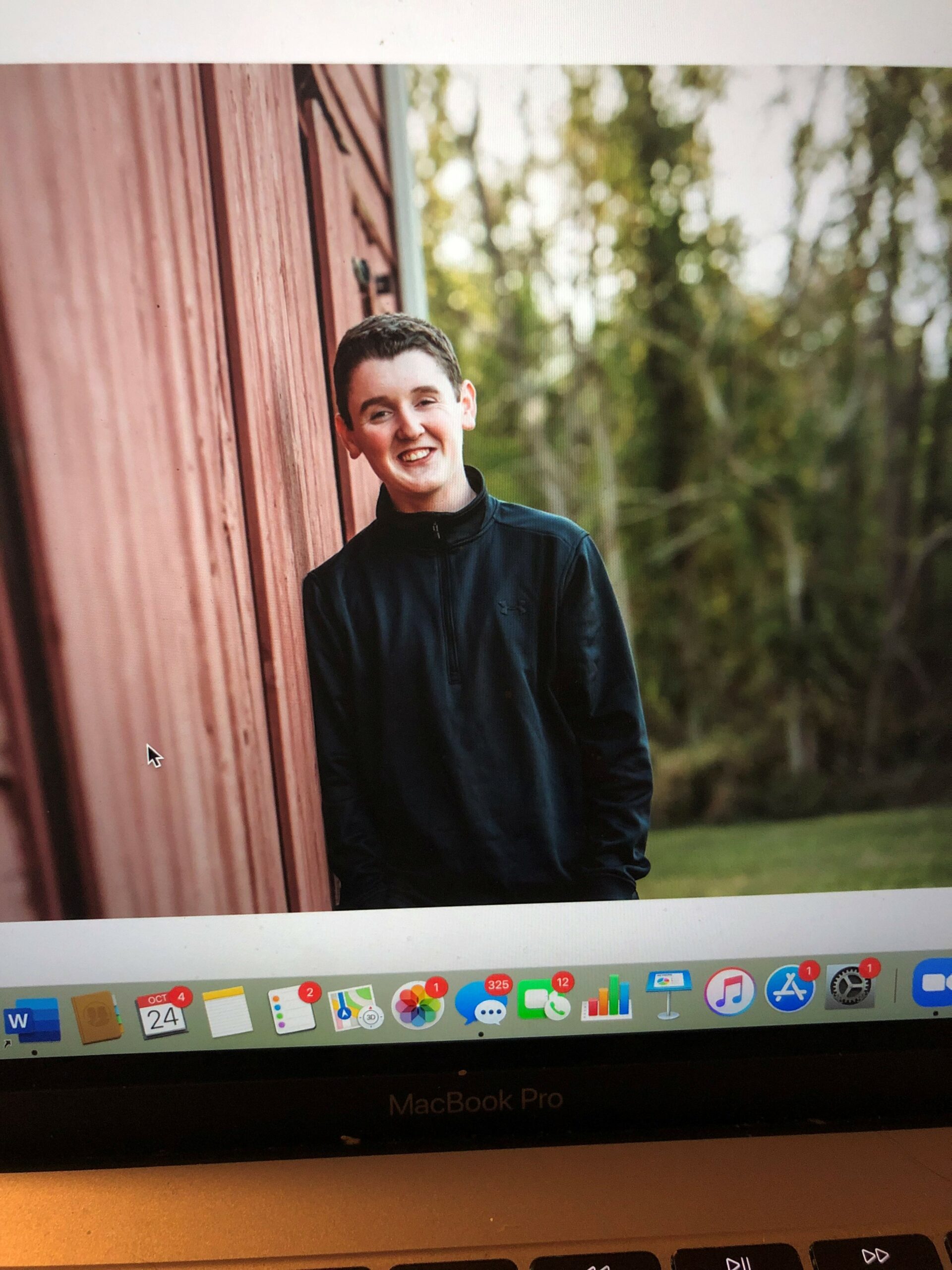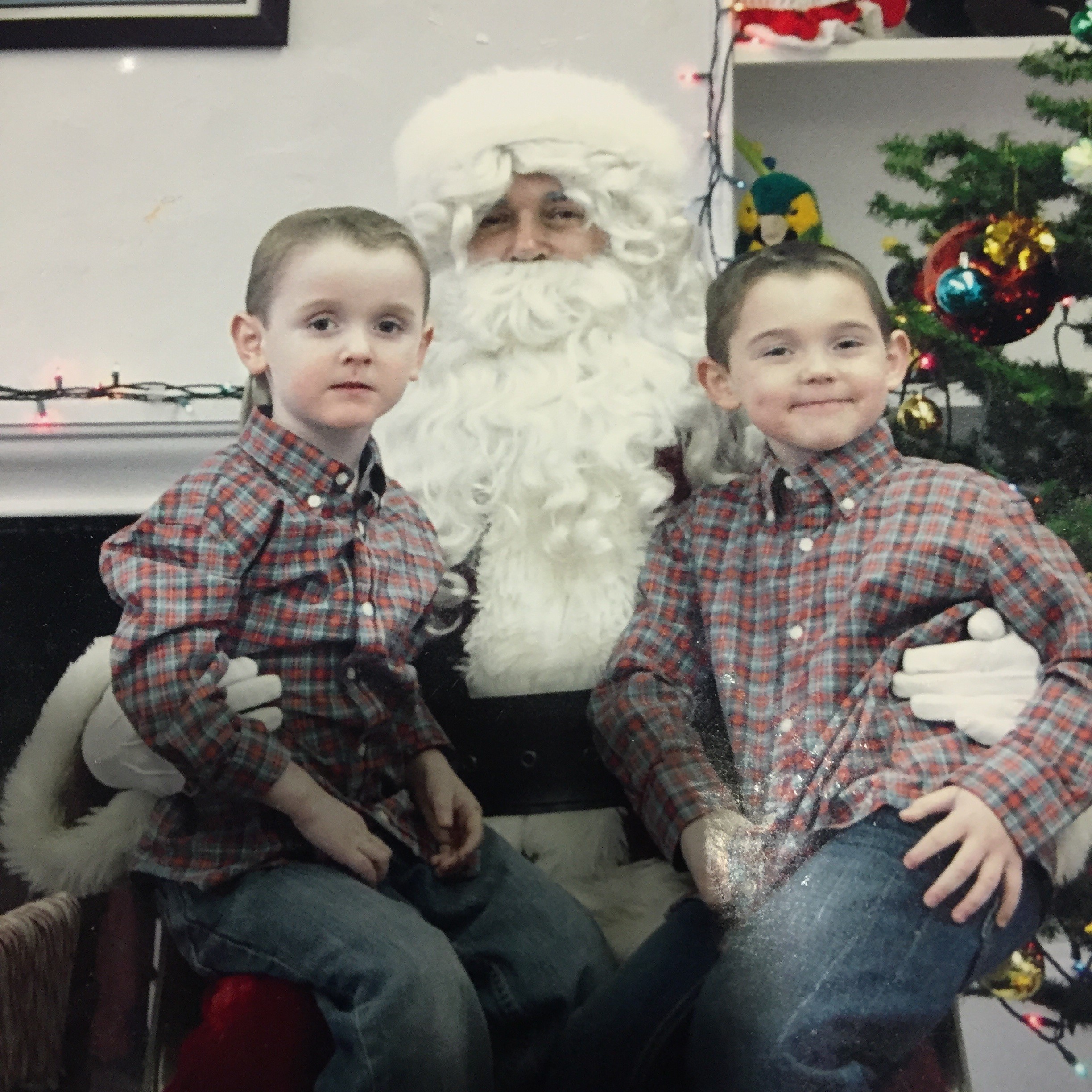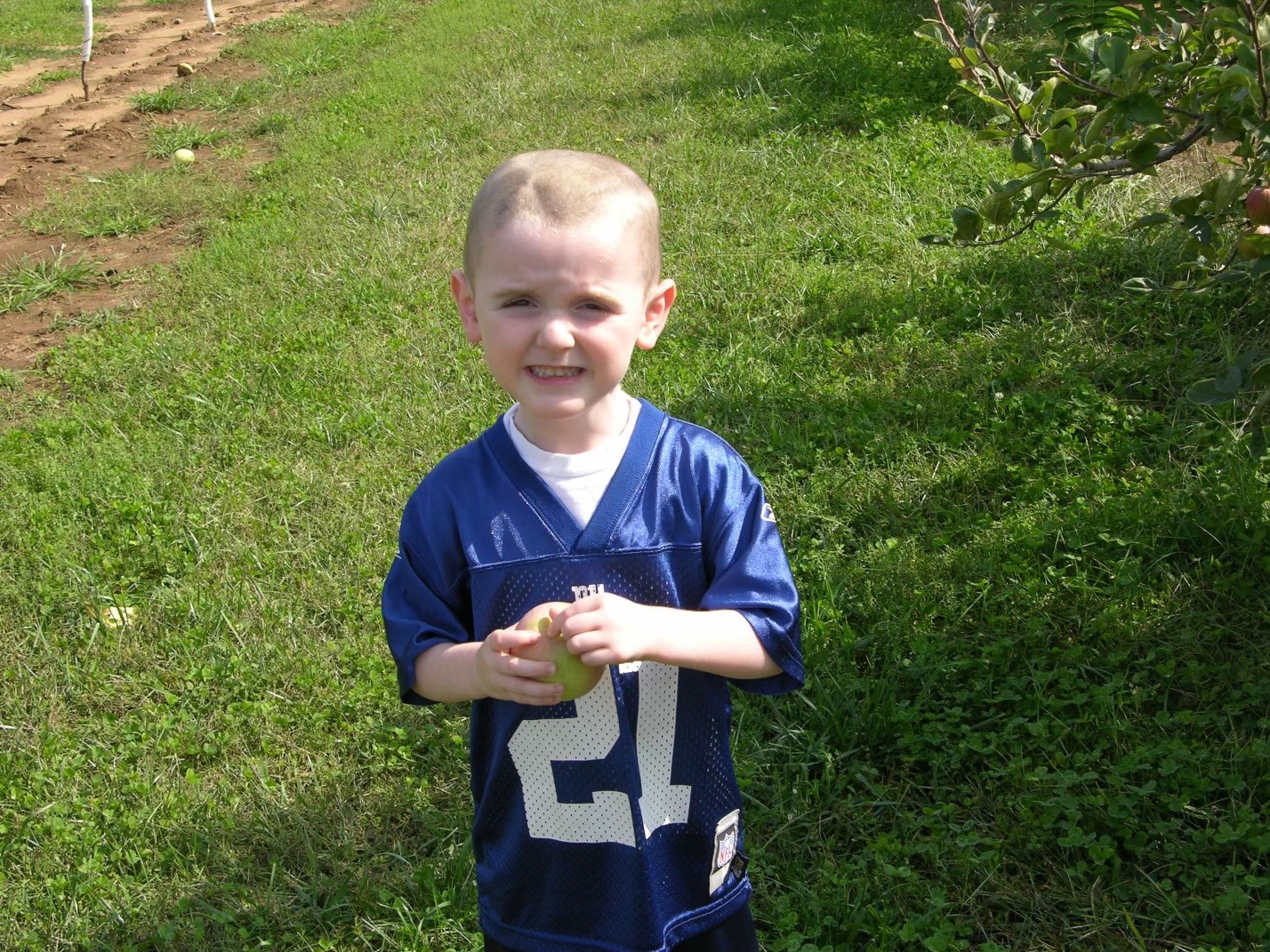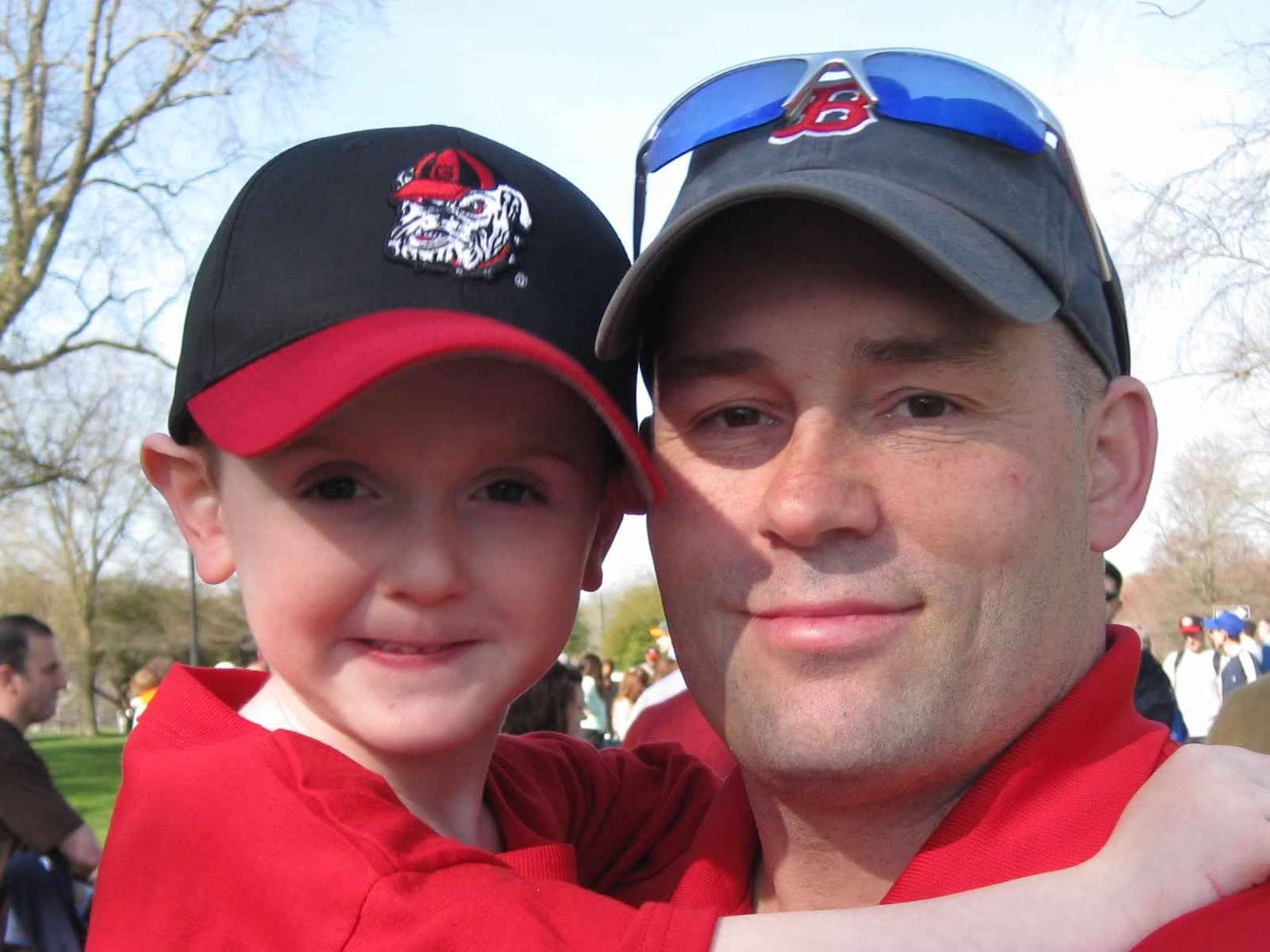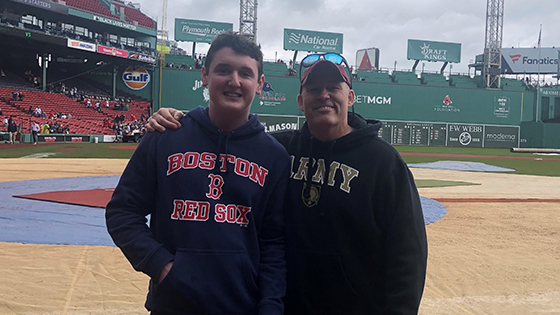
14 Dec Find Hope: Stay on the Course
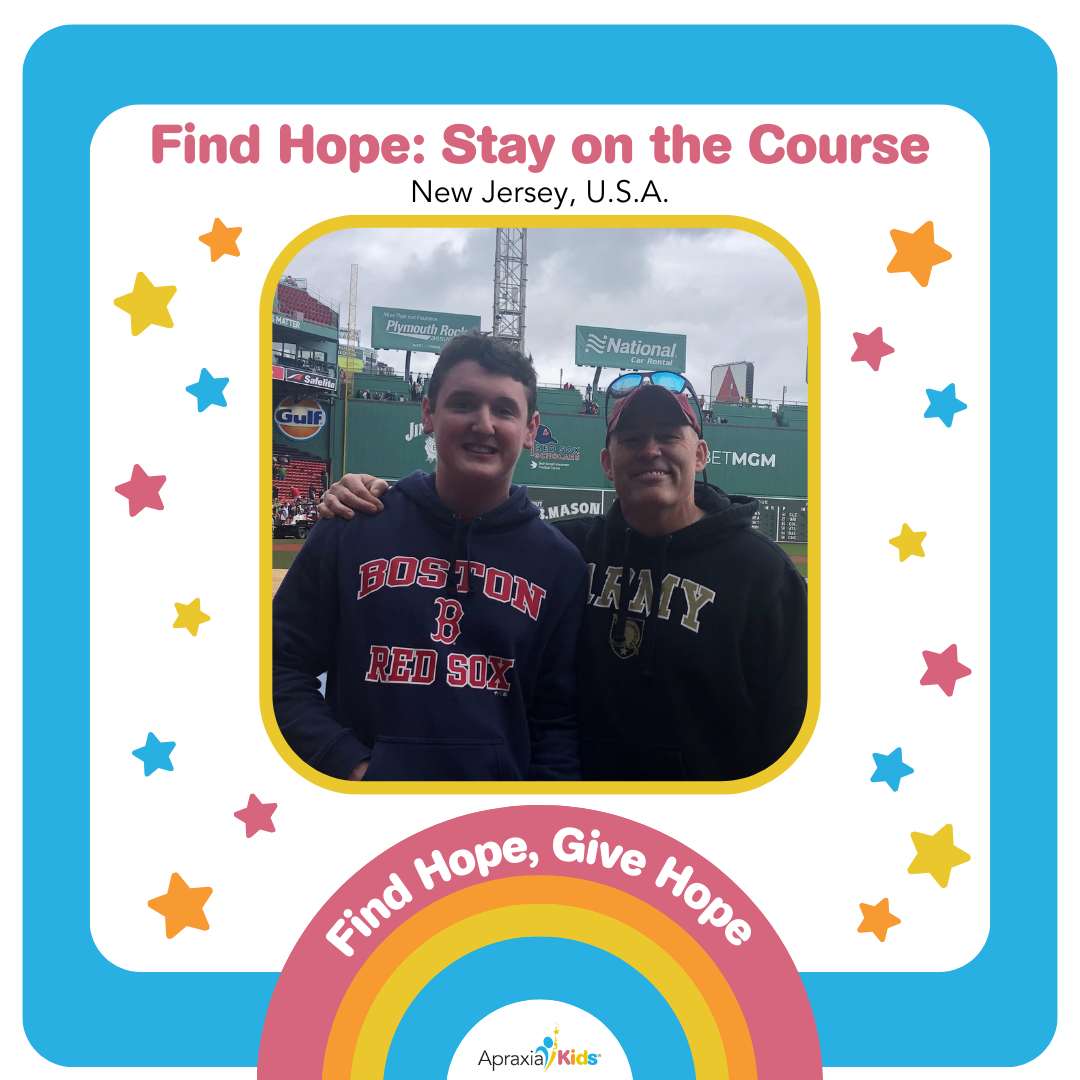
My wife Jennifer and I knew there was something different long before we had a diagnosis. Jake has an older brother (17 months older), so we had just seen typical development in a child, but with Jake, we noticed some early signs of speech delay as well as delayed motor skills. It’s never fair to compare children, but we could clearly tell they were tracking differently. We visited ENT’s for ear infections, our pediatrician, etc., but when we didn’t really get the answers we were looking for, we began researching and found a ‘developmental pediatrician’. We worked our network to help get us in months before the first opening (it’s ridiculous how long it takes to get an appointment!). We paid some ridiculous fee, traveled to NYC, and spent about 45 minutes with this professional – who promptly gave us a diagnosis of apraxia of speech and global hypotonia. She also told us that Jake might graduate HS, but would never attend college, would need various therapies for the remainder of his life, and we should be thankful that he had an older brother to help with the bullying that would go on at school. I am not kidding, that was our diagnosis meeting. Needless to say, we received input from several others, but had a diagnosis and were off and running. I maintain that this was one of the most difficult parts of the journey for me personally (just a Dad’s opinion). The fear of the unknown was crippling for me. Typical male reaction – I need to FIX this and I don’t even know what it is I’m dealing with.
The truth is the reality of the situation was a much bigger mountain to climb than either my wife or I had bargained for. We did some digging, and we found several avenues to attack the apraxia of speech piece. The hypotonia part was a little more defined and straight-forward, but there was not a whole bunch of information on apraxia of speech. We sifted through as much information as we could, and we settled on trying to learn more about all of this from CASANA (now Apraxia Kids). We made plans to fly out for the CASANA (Apraxia Kids) National Conference, which if memory serves, was being held in Chicago. We (mostly Jennifer) had done our homework. We were learning more every day about the techniques that were needed to combat apraxia, but we were also learning that not every SLP was really capable/trained to handle such techniques. Our research not only led us to Apraxia Kids, but specifically Dr. Edy Strand – well believed to be THE expert in the field. She was going to be giving a talk at the conference. Turns out the Apraxia Kids folks were trying to raise money, so they had a ticket raffle to have lunch with Dr. Edy. To this day, Jennifer won’t tell me how many tickets we purchased, but I know they all went in the bag for that prize. Needless to say, she did everything she could to tip the odds in our favor. We won the lunch, and it was life changing. Dr. Edy met with us, and we immediately came clean about all that we had done to try and get the chance to talk to her. We begged her to help us, and she sure did! She was no longer taking new patients in her role at the Mayo Clinic in Minnesota, but she was still doing a ton of research on the subject. She made an exception and was willing to take Jake for a summer program she was running. I am sitting here crying my eyes out thinking about how much this moment in time helped my family. We knew we had to be all in, so Jenn and Jake moved to Minnesota for the summer. We rented a hotel room and went to 3 sessions a day of speech therapy. We connected with our school’s SLP and flew her out for a few weeks to train with Dr. Strand. My older son and I stayed back in New Jersey, and we’d fly out for the weekends or sometimes he’d stay with them. It was an incredibly taxing time in our lives. Physically, mentally, emotionally… financially – it was so frightening on every level. Progress was painfully slow, but we learned an awful lot. He needed repetition and we gave it to him for those months out in Minnesota and when we got everyone back home.
For speech therapy, we made modifications to our house (pictures of everyday things on magnets all over the fridge so he could communicate what he wanted). We learned some sign language. We would work with him for HOURS and HOURS down in the basement on his “physical therapy”. He had hypotonia (low muscle tone), so he needed repetitions in that aspect of his life as well. I had played some football back in the day, so I set up a mattress in the basement and I’d do ‘drills’ to help him learn to walk/run. I’d hand him a ball from 1 foot away and he’d fall on the mattress, and we’d yell “TOUCHDOWN JAKE!!” or whatever sounds he needed to work on for that day/week. Then I’d back him up 2 steps, 3 steps, etc. Took us a while, but he learned to run across the room and dive onto that mattress and we learned a lot of college fight songs to help with speech!!
Preschool came and went, and we stayed after our routine. Therapy seemed constant, but that’s what he needed. We made some progress, but we knew he needed more. We signed up for another summer out in Minnesota with Dr. Strand and we went back to work. Having his school SLP trained turned out to be a great move, and we really started to see some significant progress. Knowing we weren’t ‘out of the woods’, and knowing the complexities associated with sending him off to school were coming. I can’t say I honestly felt super comfortable about everything, but I was just beginning to feel like we were doing everything we could, and that was a big step forward mentally.
We knew there would be more obstacles, and it has shown up in many forms, but we have the blueprint. Repetition is everything.
Growing up is hard enough in today’s world, but to have to navigate this on top of it was, at times, extraordinarily difficult. I would say the mental part for Jake was the most trying. Not mental, like the academic sense, mental like the realization that he was ‘different’, and that he had to do things a little differently in order to be successful. Again, I think repetition is key – so, while Jake really loved basketball and had no problem taking hundreds of jump shots a day, having to go to speech therapy, and work that much harder on academics was not something he enjoyed as much.
No doubt his greatest achievement was navigating a highly academic Holmdel High School, while having to manage the pitfalls (socially, academically, etc.) of going through a pandemic. Plus, doing it at a level that got him into 11 of the 12 colleges he applied to (he eventually chose Ithaca). He had a great story to tell in his essays, and he told it with great passion! I think if you asked Jake how he overcame apraxia, he would tell you it was because of his support network and the fact he worked really, really hard.
I am not sure where I picked it up, but somewhere along this journey, someone told me to focus on the things my son could do, not the things he couldn’t. That was a huge tipping point for me. I am blessed enough to be a head High School football coach, and I kind of look at it like this:
On any given year, if I can make my guys the very best team they can be, then I’m doing my job. For Jake, he’s become an unbelievable version of himself BECAUSE of his experiences with apraxia. He is an empathetic, kind, and passionate young man – so extraordinarily for a young man his age. The hardest part of the journey was the fear of the unknown, so I think the message of hope comes from staying on the course, even when progress is slow, even when it’s harder than anything you’ve ever done (it was). Work on making them the best version they can be!
These days, thankfully, apraxia doesn’t have a huge impact on our daily life. From year 1 to 10, 11, 12… it was a huge part of our entire family. Slowly, therapy sessions finally slowed down, and we had to focus more on all the other joys that come along with raising a teenage boy. I will never forget how scary this was for myself, my family, and my son. That stays with you forever. I am so proud of him. And us.
The best advice I can give you is that you must understand it’s not something you can just ‘fix’. I am a ‘Type A’ guy, played sports my whole life and had a great career on Wall Street prior to leaving to coach HS football. My wife and I are both built that way as we overcame a lot of things in our life by working really, really hard. We wanted to “fix” this and we did everything we could to tip the scales, but it wasn’t something that could happen overnight.
That’s my advice… understand you are in it for the long haul and it’s going to be a hell of a journey. Buckle up, put your priorities in order and work together to work your tails off for the best outcome you can!
Be inspired by more stories today and learn about how you can Give Hope!
Visit, FIND HOPE, GIVE HOPE

My wife Jennifer and I knew there was something different long before we had a diagnosis. Jake has an older brother (17 months older), so we had just seen typical development in a child, but with Jake, we noticed some early signs of speech delay as well as delayed motor skills. It’s never fair to compare children, but we could clearly tell they were tracking differently. We visited ENT’s for ear infections, our pediatrician, etc., but when we didn’t really get the answers we were looking for, we began researching and found a ‘developmental pediatrician’. We worked our network to help get us in months before the first opening (it’s ridiculous how long it takes to get an appointment!). We paid some ridiculous fee, traveled to NYC, and spent about 45 minutes with this professional – who promptly gave us a diagnosis of apraxia of speech and global hypotonia. She also told us that Jake might graduate HS, but would never attend college, would need various therapies for the remainder of his life, and we should be thankful that he had an older brother to help with the bullying that would go on at school. I am not kidding, that was our diagnosis meeting. Needless to say, we received input from several others, but had a diagnosis and were off and running. I maintain that this was one of the most difficult parts of the journey for me personally (just a Dad’s opinion). The fear of the unknown was crippling for me. Typical male reaction – I need to FIX this and I don’t even know what it is I’m dealing with.
The truth is the reality of the situation was a much bigger mountain to climb than either my wife or I had bargained for. We did some digging, and we found several avenues to attack the apraxia of speech piece. The hypotonia part was a little more defined and straight-forward, but there was not a whole bunch of information on apraxia of speech. We sifted through as much information as we could, and we settled on trying to learn more about all of this from CASANA (now Apraxia Kids). We made plans to fly out for the CASANA (Apraxia Kids) National Conference, which if memory serves, was being held in Chicago. We (mostly Jennifer) had done our homework. We were learning more every day about the techniques that were needed to combat apraxia, but we were also learning that not every SLP was really capable/trained to handle such techniques. Our research not only led us to Apraxia Kids, but specifically Dr. Edy Strand – well believed to be THE expert in the field. She was going to be giving a talk at the conference. Turns out the Apraxia Kids folks were trying to raise money, so they had a ticket raffle to have lunch with Dr. Edy. To this day, Jennifer won’t tell me how many tickets we purchased, but I know they all went in the bag for that prize. Needless to say, she did everything she could to tip the odds in our favor. We won the lunch, and it was life changing. Dr. Edy met with us, and we immediately came clean about all that we had done to try and get the chance to talk to her. We begged her to help us, and she sure did! She was no longer taking new patients in her role at the Mayo Clinic in Minnesota, but she was still doing a ton of research on the subject. She made an exception and was willing to take Jake for a summer program she was running. I am sitting here crying my eyes out thinking about how much this moment in time helped my family. We knew we had to be all in, so Jenn and Jake moved to Minnesota for the summer. We rented a hotel room and went to 3 sessions a day of speech therapy. We connected with our school’s SLP and flew her out for a few weeks to train with Dr. Strand. My older son and I stayed back in New Jersey, and we’d fly out for the weekends or sometimes he’d stay with them. It was an incredibly taxing time in our lives. Physically, mentally, emotionally… financially – it was so frightening on every level. Progress was painfully slow, but we learned an awful lot. He needed repetition and we gave it to him for those months out in Minnesota and when we got everyone back home.
For speech therapy, we made modifications to our house (pictures of everyday things on magnets all over the fridge so he could communicate what he wanted). We learned some sign language. We would work with him for HOURS and HOURS down in the basement on his “physical therapy”. He had hypotonia (low muscle tone), so he needed repetitions in that aspect of his life as well. I had played some football back in the day, so I set up a mattress in the basement and I’d do ‘drills’ to help him learn to walk/run. I’d hand him a ball from 1 foot away and he’d fall on the mattress, and we’d yell “TOUCHDOWN JAKE!!” or whatever sounds he needed to work on for that day/week. Then I’d back him up 2 steps, 3 steps, etc. Took us a while, but he learned to run across the room and dive onto that mattress and we learned a lot of college fight songs to help with speech!!
Preschool came and went, and we stayed after our routine. Therapy seemed constant, but that’s what he needed. We made some progress, but we knew he needed more. We signed up for another summer out in Minnesota with Dr. Strand and we went back to work. Having his school SLP trained turned out to be a great move, and we really started to see some significant progress. Knowing we weren’t ‘out of the woods’, and knowing the complexities associated with sending him off to school were coming. I can’t say I honestly felt super comfortable about everything, but I was just beginning to feel like we were doing everything we could, and that was a big step forward mentally.
We knew there would be more obstacles, and it has shown up in many forms, but we have the blueprint. Repetition is everything.
Growing up is hard enough in today’s world, but to have to navigate this on top of it was, at times, extraordinarily difficult. I would say the mental part for Jake was the most trying. Not mental, like the academic sense, mental like the realization that he was ‘different’, and that he had to do things a little differently in order to be successful. Again, I think repetition is key – so, while Jake really loved basketball and had no problem taking hundreds of jump shots a day, having to go to speech therapy, and work that much harder on academics was not something he enjoyed as much.
No doubt his greatest achievement was navigating a highly academic Holmdel High School, while having to manage the pitfalls (socially, academically, etc.) of going through a pandemic. Plus, doing it at a level that got him into 11 of the 12 colleges he applied to (he eventually chose Ithaca). He had a great story to tell in his essays, and he told it with great passion! I think if you asked Jake how he overcame apraxia, he would tell you it was because of his support network and the fact he worked really, really hard.
I am not sure where I picked it up, but somewhere along this journey, someone told me to focus on the things my son could do, not the things he couldn’t. That was a huge tipping point for me. I am blessed enough to be a head High School football coach, and I kind of look at it like this:
On any given year, if I can make my guys the very best team they can be, then I’m doing my job. For Jake, he’s become an unbelievable version of himself BECAUSE of his experiences with apraxia. He is an empathetic, kind, and passionate young man – so extraordinarily for a young man his age. The hardest part of the journey was the fear of the unknown, so I think the message of hope comes from staying on the course, even when progress is slow, even when it’s harder than anything you’ve ever done (it was). Work on making them the best version they can be!
These days, thankfully, apraxia doesn’t have a huge impact on our daily life. From year 1 to 10, 11, 12… it was a huge part of our entire family. Slowly, therapy sessions finally slowed down, and we had to focus more on all the other joys that come along with raising a teenage boy. I will never forget how scary this was for myself, my family, and my son. That stays with you forever. I am so proud of him. And us.
The best advice I can give you is that you must understand it’s not something you can just ‘fix’. I am a ‘Type A’ guy, played sports my whole life and had a great career on Wall Street prior to leaving to coach HS football. My wife and I are both built that way as we overcame a lot of things in our life by working really, really hard. We wanted to “fix” this and we did everything we could to tip the scales, but it wasn’t something that could happen overnight.
That’s my advice… understand you are in it for the long haul and it’s going to be a hell of a journey. Buckle up, put your priorities in order and work together to work your tails off for the best outcome you can!
Be inspired by more stories today and learn about how you can Give Hope!
Visit, FIND HOPE, GIVE HOPE
Credentials:
Hours of Operation:
Treatment locations:
Address:
,
Phone:
Email:
Overall Treatment Approach:
Percent of CAS cases:
Parent Involvement:
Community Involvement:
Professional consultation/collaboration:
Min Age Treated:
Max Age Treated:
Insurance Accepted:



